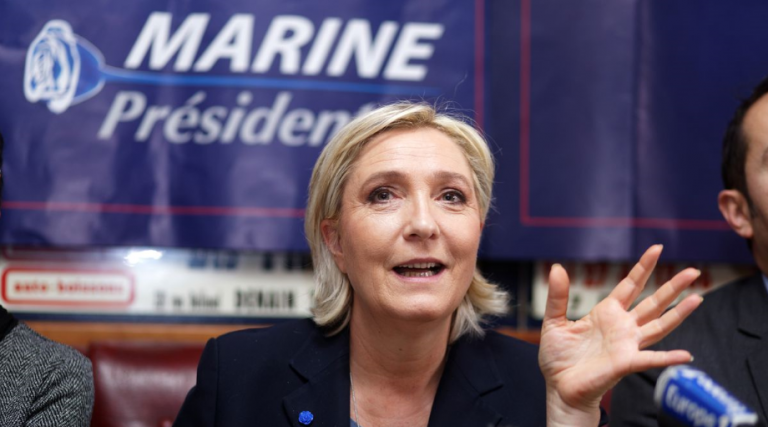French President Emmanuel Macron’s centrist LREM party is neck-and-neck with the right-wing Rassemblement National, formerly Front National, for the May 2019 European Parliament elections, according to the latest opinion poll.
The two parties scored 21.5% and 21% of voting intentions, respectively, in the survey by Odoxa-Dentsu Consulting, published on Thursday (13 September).
The conservative Les Républicains party of Laurent Wauquiez came in third place with 14% of voting intentions, followed by the far-left La France Insoumise of Jean-Luc Mélenchon with 12.5%.
The Socialist Party of previous president François Hollande won just 4.5%, fewer than green party Europe Ecologie Les Verts with five percent.
In an Ifop poll in May, Macron’s La République En Marche (Republic on The Move) party was seen winning 27% of the vote, well ahead of the right-wing’s 17% and more than Macron’s 24% in the first round of France’s April 2017 presidential elections.
Earlier this month, Macron’s popularity hit an all-time low following the resignation of popular environment minister Nicolas Hulot and a summer scandal over his bodyguard.
Only 23% of those surveyed had a favourable opinion of him, down from 27% in August, a YouGov poll found.
For parliamentary and local elections France has been able to keep the right-wing at bay thanks to its electoral system, using a constituency-based two-round majority system.
At the 2015 local elections, the FN came second in the first round, but obtained only 62 seats in the department councils (against more than 1,000 for the centre-right). The 2017 parliamentary elections opened the door only to eight MPs from Marine Le Pen’s party (from a total of 577).
In proportional elections however, such as the European elections or the presidential elections, Marine Le Pen’s party has been able to show its strength, having come first in the 2014 European elections (with 24 MEPs) and having made it to the run off of the 2017 presidential election.
Macron wants to shake up the EU political system, hoping to forge a new progressive alliance at the end of this year for the 2019 elections.
Source: euractiv
Ask me anything
Explore related questions





